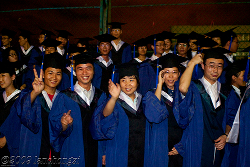 |
**__Related stories:__***linkurl:Best Places to Work : Postdocs 2009;http://www.the-scientist.com/2009/03/1/47/1/
[March 2009]*linkurl:Science goes to China;http://www.the-scientist.com/article/home/53133/
[May 2007]*linkurl:Are we training too many scientists?;http://www.the-scientist.com/article/home/24540/
[September 2006]



















